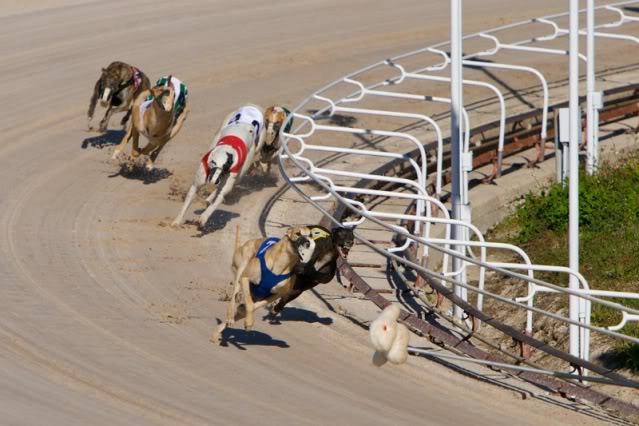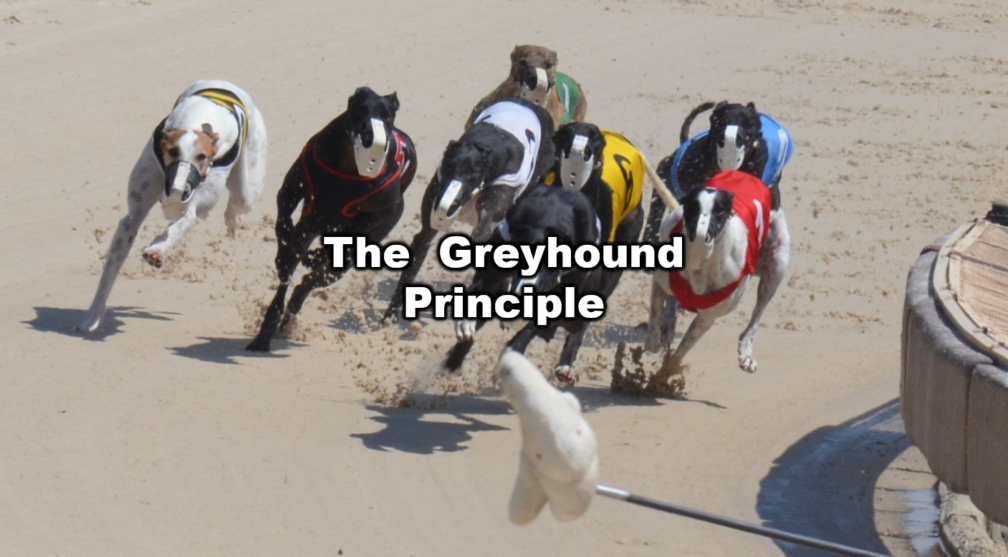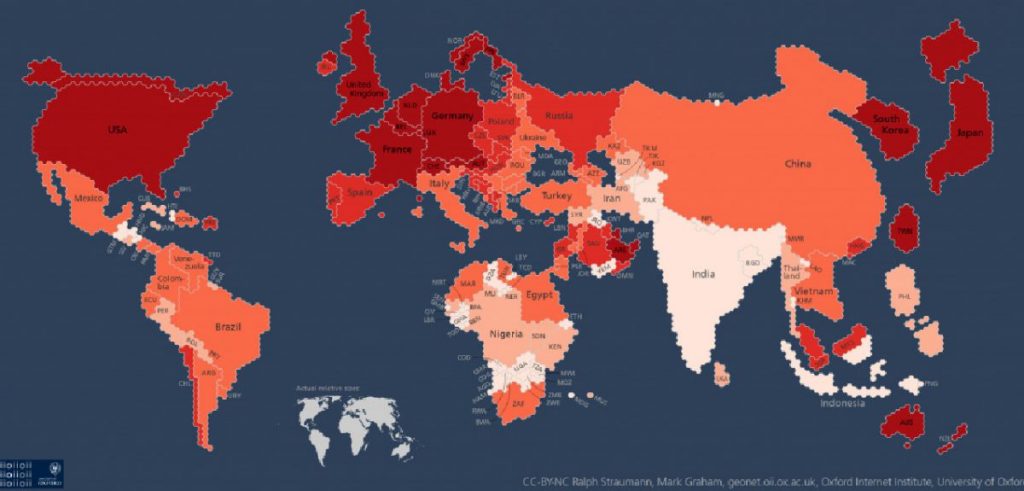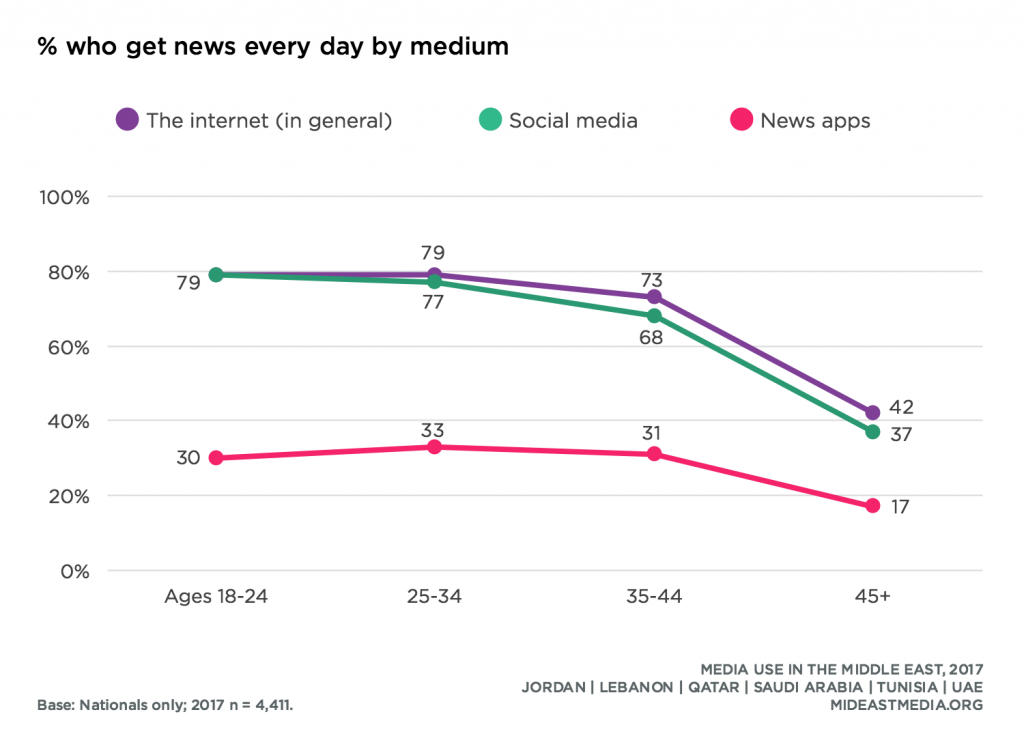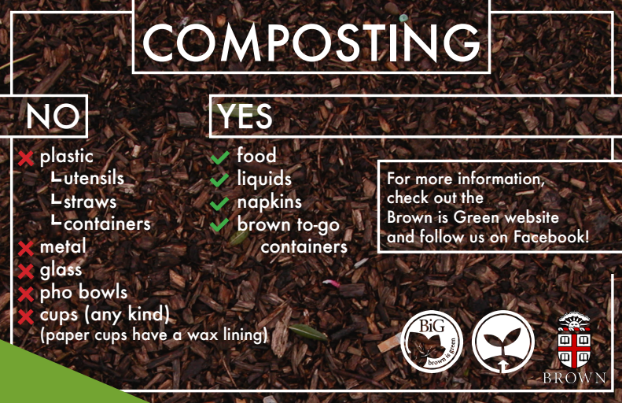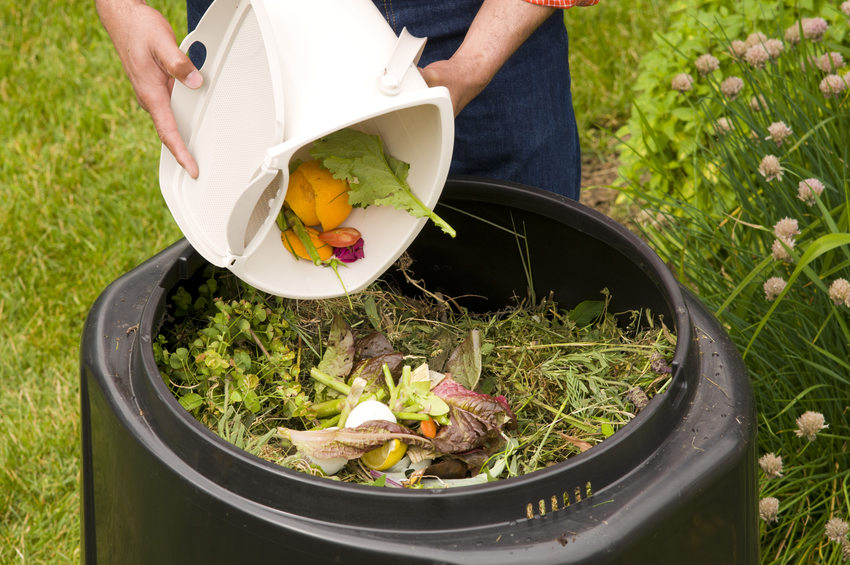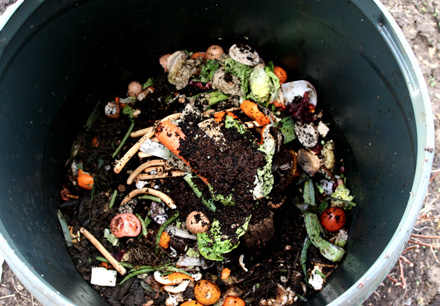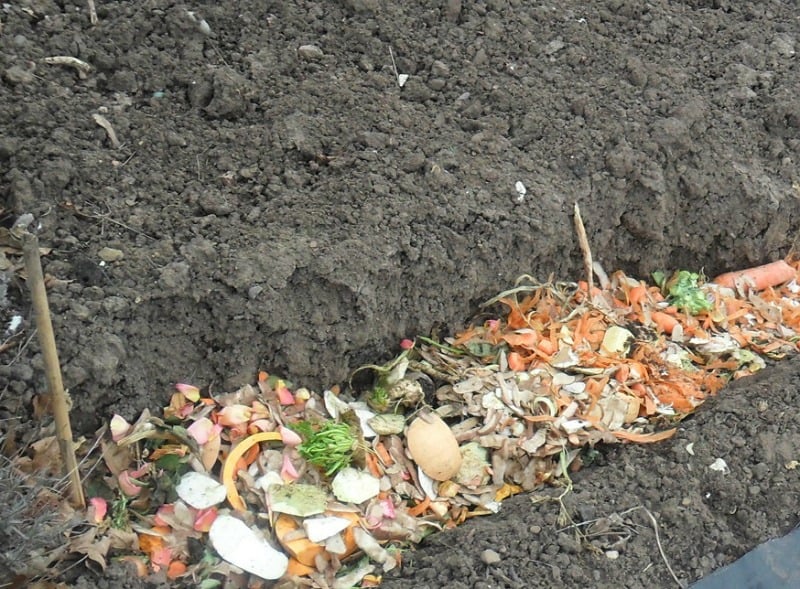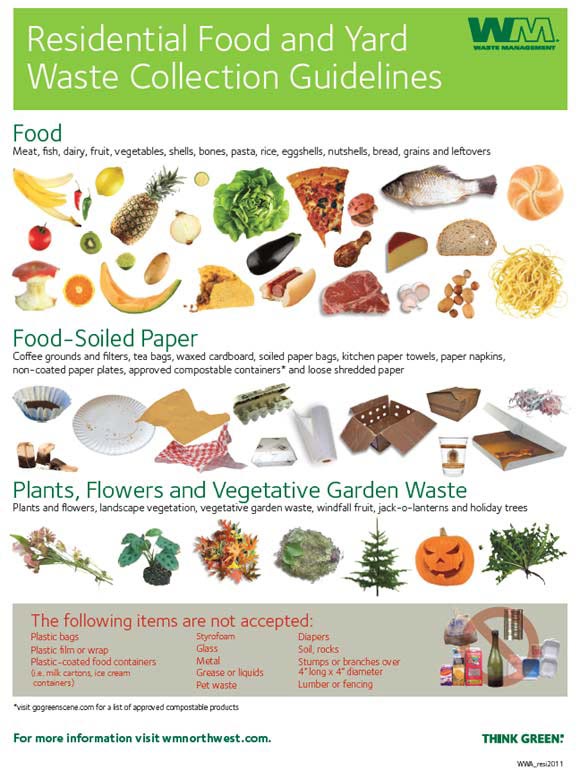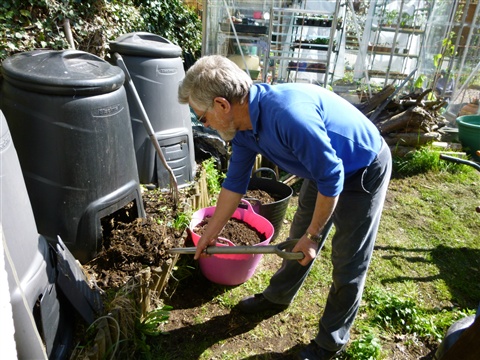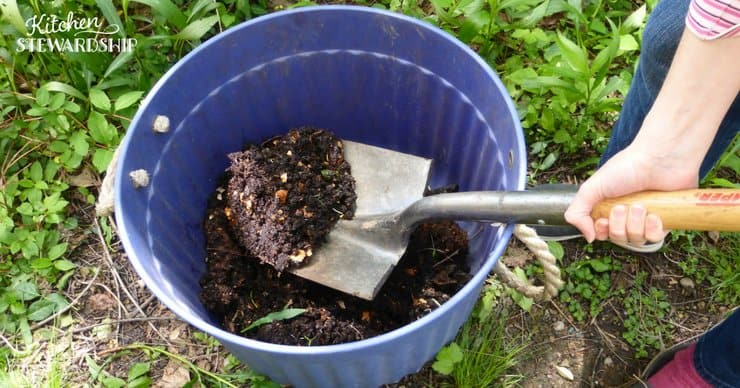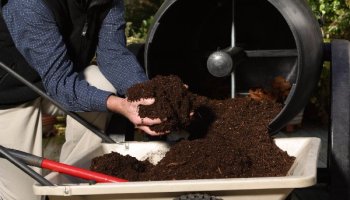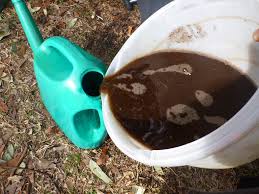Loved ones go missing every day, all over the modern world. They always have. Disasters – especially fast-moving disasters – have more than their share. In a major crisis, we can expect to continue to have lost souls we want to find. As always, a little prep work will greatly improve our odds of success.
A while ago I wrote an article about missing persons that focuses on steps to take now that applies to both continuing “normal” or near-normal life and temporary disasters. Many can assist with various limited-comms, bug-out-route and grid-down missing person searches as well.


“Psh, Only Idiots Get Lost/Lose People”
It’s easy to watch the news from our chairs and scoff over the idiocy of somebody who managed to lose themselves, partners/buddies, children, or seniors, or the choices made after somebody became lost. But it happens, all kinds of ways.
Many of us believe we’ll be busier than ever in a disaster. Busy leads to tired. Tired leads to falling asleep in an instant, in some pretty incredible places – ask a newborn’s parents. In that brief moment, kids, pets and senile seniors can be gone, gone faster and further than we sometimes expect.
It’s also pretty easy to lose your bearings in snowstorms, in less-familiar terrain, if you’re not noting the local trend for which way things pile around trees and how your direction of travel relates when tracking/stalking/retrieving game, if it’s a gray day with little sun or there was or is now deep fog, or if there’s little terrain difference to help. Then there’s disorientation from things like relative contraindication from medications, taking a different cold/allergy/PMS pill than usual, or getting bopped in the head, and making poor decisions or staggering somewhere before we get our senses back.
We’re preppers, supposedly planning for even the most improbable worsts. If nothing else, take it from that tact and make a plan. Otherwise, we’re the ones guilty of complacency bias and only hoping for the best.
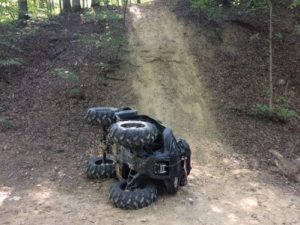
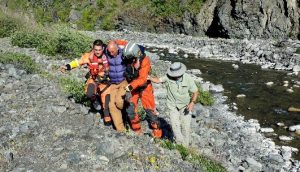
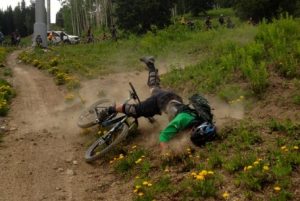
MPs Are Not Always Lost
MPs can know exactly where they are and exactly how they would get home, if they could. A vehicle accident/malfunction, rotting wood giving way, being treed by a bear/dogs, getting Tigger’ed into a river, gored by a buck/bull, snagged in a game trap or barbed wire, pinned by the vehicle/equipment we were working on, dislocating a shoulder when we fell out of a tree stand so we’re hanging by our harness unable to climb or release … all kinds of things can happen, even to experienced folks.
Again, preppers here. They were worth planning to feed and defend. They’re worth planning to find if they go missing, even when there’s no agency to tap for help.


Communication – Pre, Peri & Post
Just like we need to communicate the 3x-primary and 3x-alternate bug-out plans/routes to family and partners in case we’re not actually there, everybody needs to understand our missing person plans. Add the list of steps you’ll take to everybody’s pocket/wallet/fridge/bag medication, patient history, and ICE lists.
The steps will be conditional, just as our get-home and bug-out steps vary by needs and abilities. It’s going to depend on personnel, terrain, weather, and human climate conditions as well as if we’re home or mid-bug out. Create a quickie reference guide akin to SALUTE reporting or RTFA assignments for facets/functions you need to address. Game plan as many variables as possible, amending the outline as you go and creating an SOP for each general situation.
Share that plan. If it’s a group that meets or if the family is a captive audience in the car or around a campfire, that’s a great time to bust out printed outlines and gather input to create our plan.



Especially with family, remember, you’re not conducting training or a lecture unless you’ve been invited to conduct training or a lecture. Approach it as “hey, guys, saw this on the news… what if… check this out… Adam, what do you think about… Eve, how would you handle… Hey Zus, do you have any ideas on… Bani, what would you change with…”.
The perceived input opportunity will greatly impact how information is received, how well it lodges, and whether some five-year-old has the chance to offer one of those brilliant “the elephant is still in the fridge” observations that seriously impacts your success.
So does our communication when something goes wrong.
Part of ALL crisis planning needs to be eliminating “calm down” from our vocabulary. I seriously question if ever in the history of human speech has “calm down” actually had positive effects, argument or panic mode, but it’s even less likely to work with a missing loved one. The goal is “chill” but we don’t want to actually say “dude, chill; you’re/that’s not helping”.


They may shut down – costing us their input – or it can backfire entirely with “Don’t tell me to calm down!” arguments or people heading off on their own. If our people are important enough to find, it’s important enough to learn how to communicate under stress, in a way that doesn’t create additional distractions.
Find alternatives that express a “why” and convey action instead. “I’m spastic, too. We need everybody together to gather information and eliminate possibilities so we can find them without losing extra time.”
Having ready-to-go plans, with and without current resources/authorities, can help. It eliminates the willy-nilly checking and “what do we do” stages, streamlines information gathering, and creates definitive action steps. Just having set steps takes away panic, and following them gives us the “do something” outlet of action, keeping everyone productive (and calmer).

Common MP Thoughts
Let’s face it: Most people do not want to admit they’re lost. They’ll keep going another “five more minutes” or “one more hill”. Repeatedly. Fighting that ego from a searcher’s end is impossible. (Also, delays from: “Ermagad, I’m in so much trouble” from both MPs and babysitters/caretakers.)
Therefore, we plan for MPs to cut some circles, zig-zags, and perpendicular trail even if they do eventually go “okay, fine, Imma hug dat tree now that I’m 500-5000 yards from where I was when I went ‘uh-oh’.” We also plan for them to have had time to wait, dehydrate/become tired (poor decision-making), fret, and start moving again.
That means we start with checking specific locations, but when we search, we search wide.
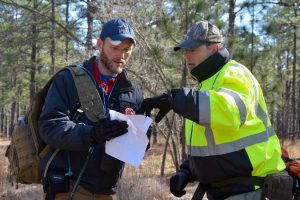
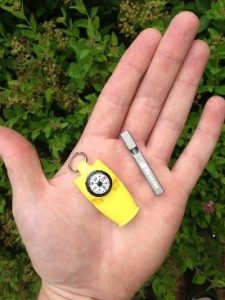
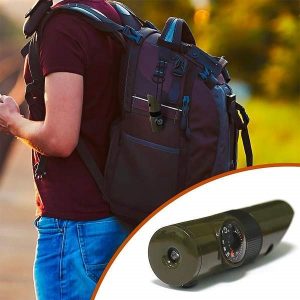
MP Search Basics
Whistles – Whistles can be heard when you’re behind/under rubble or too dehydrated/exhausted to purse your lips or make sound. They get dampened by thick brush and forest, but the shrill still carries further than croaks and shouts, and it’s a much more distinct, unmistakable sound.
I understand not wanting to add more to pockets and keyrings. Still, daily task kit buckets/boxes, and range, hunting, GHB/BOB/72-Hour/GOOD, and day bags can all handle a small piece of plastic or metal clipped to them. So can life vests, horse tack, the mower, ATV, tiller, PTO on-off switch or attachment point, and tow hitch (ideally somewhere low – like, where it can be grabbed if you’re on the ground pinned or broken).
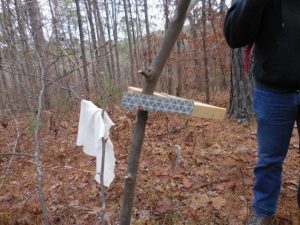
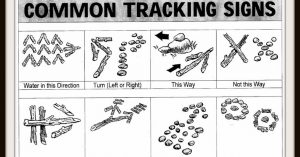
Mark Your Trail – Urban or wilds, once you realize you’re lost and as you search, mark where you’ve been and where you’re headed. Put supplies for marking on the pocket list so it’s not forgotten.
Make sure to mark both “sides” and “top and bottom” when you go over a verge, change direction to reach resources, or circumvent impasses. It can be breaking branches, notching trees, colorful cord/rope, strips of cloth or tape, clothespins, hi-vis spray or tube paint, dragging a foot the direction of travel, paper to wrap or tuck, or using rock or a chunk of metal to hammer/scratch a mark in concrete or brick.
From the MP side, we can also leave messages. “Water”, “fire tower” or “downhill” can be carved into a stick, door, etc. Had Bill Ewasko http://www.otherhand.org/home-page/search-and-rescue/searching-for-bill-ewasko/ scratched his “well, boogers” and then his “oh crap” intentions into a bone or written in blood on a shirt sleeve and stuck them atop or sticking out of a mound on a ridge or the center of a trail, we’d probably know what happened to him.
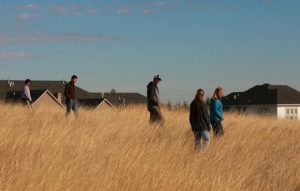
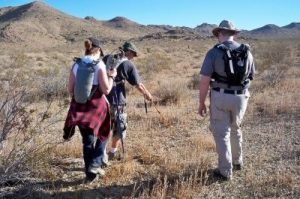
Teamwork – Ideally searchers go out in at least pairs or foursomes. It’s a safety thing, and it provides options for communicating and reacting to developments.
Base/Control – Whether we have radios/phones or are totally non-electric, even if we only have 2-3 people, one stays “home” (or wherever the MP is supposed to meet us). The home-base body is going to mark cleared areas and coordinate most-likely spots and searchers as information/personnel become available. They’re also there to keep people there as they return, MP or searchers.
Base/control personnel can be chosen either for coordination skillsets, or to decrease their risk exposure. If I have an ER nurse and a basic shooter-grower with equal search skills, Doc holds the fort. Likewise for even just a head cold, or whose available gear/boots are most suited. Continually assess available assets for who you’d send where (for all scenarios, not just MPs).
If you can’t leave a body, create a message board where the MP disappeared, where they’re heading, at the campsite, at nearby water sources, etc., telling the MP to stay put and leaving information about coverage and plans/goals for others.
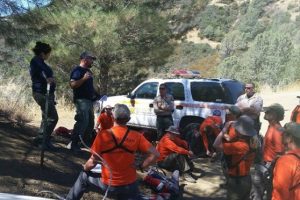
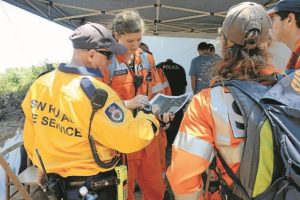
If there’s only one map, it goes with the searcher(s) unless they’re very familiar with the area – in which case it reverts to base/control. Keep BOB and vehicle maps in insert sleeves or have Contact or parchment paper that can be used as overlays for non-permanent notations (and inside Ziploc’s in case it’s raining).
Come-Back & Rally – Create recall signals or rally intervals that fit grid-down, no-electronics home and on-the-trail situations. We need to pass incoming information (like finding the MP), especially in risky terrain/climates/weather. Arrange flags, flares (wildfire hazards), foghorns, sirens, gunshots at interval, a return-to-base every 2-6 hours, whatever fits our needs and abilities.
Pattern Awareness – Habits can help establish timelines and clue us if somebody left in a hurry or is acting out of character. Absent and present bags, clothing/shoes, and equipment can tell us where MPs aren’t as well as where they might be. Know where somebody was going to garden, hunt, fish, and collect wood, and the routes they use to get there.
List a reminder on pocket checklists if searchers need to carry out must-have’s like an inhaler, insulin, blood thinner, or seizure meds.
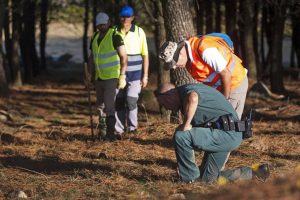
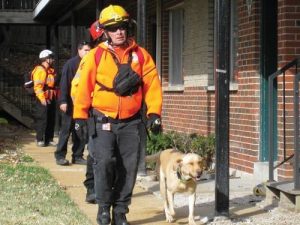
Specific Targets – Nobody goes out to “just” look. The ones checking likely spots work off a list. If there is not positive contact with base/control, they return before they re-deploy, even if they think of another or found a trail to follow. If somebody trails, they stick to trailing. They return/make contact before acting on any brilliant idea that occurs.
Without likely spots or a tracker, you work a spiral or you zig-zag a set of square grids or cones leading from the MP’s last-known location and likely destination or alternate destinations. Again, those souls do not re-deploy without positive contact with base/control.

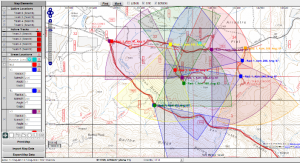
Otherwise, the same locations get checked by multiple teams while others go unchecked for hours/days, searchers end up looking for searchers who failed to rally (resources away from MP, or unnecessary endangerment/exposure after an MP is found), and only one team has information that would be valuable to all of them or would contribute to forming a better picture, which sometimes completely changes how and where you’re looking.
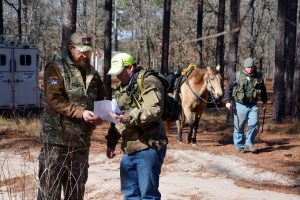

Grid-Down Missing Persons
While the grid is up and for however long authorities exist, getting them involved immediately makes a huge impact on missing-person recovery. On our own, we need to act quickly, but it needs to be orderly. An SOP and pocket quick-reference checklist to guide information gathering and searches – one that includes communication plans for all scenarios – will prevent costly mistakes and wasted time.
There are steps in “Preparing for the Worst Day” http://www.theprepperjournal.com/2016/04/29/preparing-for-the-worst-day/ that can make things faster both in normal life and a power-out, limited-comms disaster. Many also apply to extended grid-down mega-crisis scenarios.
People of all ages and skill levels go missing every day. They always have and always will. Don’t let this be the prep that gets pushed aside until it’s too late.
Follow The Prepper Journal on Facebook!
. How prepared are you for emergencies?
#SurvivalFirestarter #SurvivalBugOutBackpack #PrepperSurvivalPack #SHTFGear #SHTFBag


